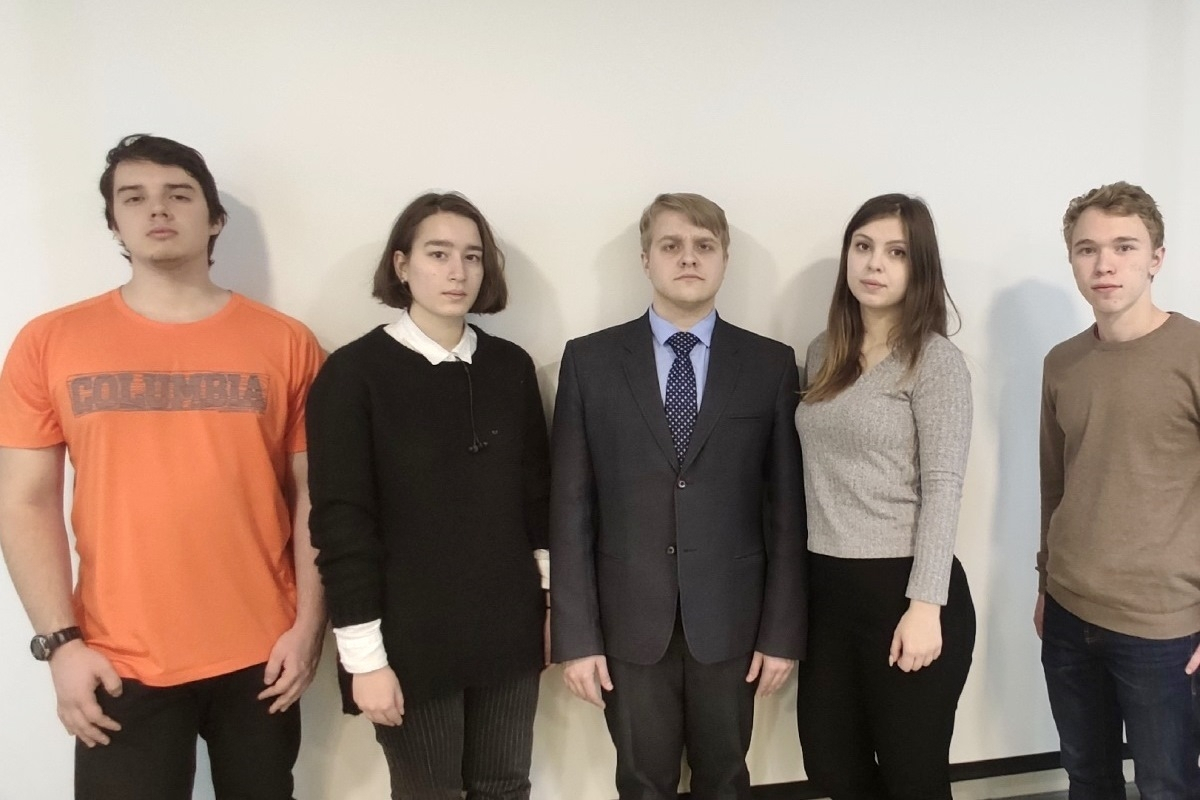‘SPbU Start-up-2020’: students from St Petersburg University suggest a new method for preventing short circuits in Li-ion batteries

Participants in the ‘SPbU Start-up-2020’ student contest, the DefenderEnergy team, have come up with a method to prevent internal short circuits (ISC) in lithium-ion (Li-ion) batteries. The project targets manufacturers of batteries used in mobile phones, household appliances and cars.
Li-ion batteries have become a ubiquitous part of our daily lives. However, these batteries have some serious issues. One of the most significant shortcomings of Li-ion batteries is the risk of a short circuit within the cell that can lead to battery fires and explosions. From 1991 to 2019, 265 such cases were reported at US airports. Over the past two years, there have been at least 20 incidents of Tesla electric cars fires caused by the electric vehicle’s battery.
Sudden voltage peaks in the battery or mechanical damage may trigger electrical breakdown. The separator between the two electrodes inside the battery is damaged and the current ceases to pass through the external circuit. Then, the temperature of the Li-ion cell will rise beyond the safe temperature range, and the separator will melt and increase in size. Thus, an ISC event occurs, resulting in battery failure, fire or explosion with potential health and safety hazards, as well as financial losses.
Scientists around the world are fighting to eliminate these problems. Recently, a few solutions have been offered. Most often, a temperature controller is installed on the battery. The controller registers temperature increases and prevents the battery from overheating. However, such a system may detect a problem when it is too late. Indeed, fire and explosion will be prevented and the equipment can be expected to survive, but the battery cannot be saved. Besides, the controller increases the size of the final product. Another safeguard against short-circuiting involves setting up a thermistor – a temperature sensor layer on the cathode. This, however, requires a radical re-engineering associated with high costs. Moreover, the technology is difficult to adapt for various types and sizes of batteries.
We have come up with the idea to prevent an ISC by using advanced composite materials for cathodes. The composite will consist of three components: a conductive additive – metal or carbon; an active material; and a polymer binder. At the moment, we are working on the constituent materials of the composite.
Anna Nikitenko, Captain of the DefenderEnergy team, a master’s student in the ‘Physics’ programme
‘Due to the unique chemical composition of our cathode element, as the temperature of the battery rises, the internal resistance increases. This stops the electric current flow inside the battery. The temperature no longer goes up, and the battery returns to its usual mode of operation,’ explained Anna Nikitenko, the Captain of DefenderEnergy team, a master’s student in the ‘Physics’ programme.
Such a method has a few advantages. Its implementation will not require re-engineering of the production lines and, consequently, large investments. Besides, there will be a composite cathode in each cell of the device, while the temperature controller is attached only to one of them. Unless the battery starts overheating from this particular cell, the signal of malfunctions may come late. Additionally, thanks to the inexpensive components of the composite material, the cost of the battery will be at least 10% lower compared to batteries in which other technologies are used to prevent thermal runaway. Another advantage of the project is that changes in the cathode composition will not affect the size of the battery. This will facilitate the process scale-up and technology transfer from lab to production.
The team plans to collaborate with manufacturers of batteries for mobile phones, household appliances and cars. They also plan to approach manufacturers of large industrial batteries; for instance, batteries used in submarines or electric vehicles. They may offer the finished product or the product licence. The students have already started negotiations with a few companies.
The ‘SPbU Start-up’ contest is being held at the University for the fifth time. Teams that have presented best knowledge-intensive and commercially viable business models will receive monetary prizes from the Endowment Fund of St Petersburg University: 300,000 roubles for the first, 200,000 for the second, and 100,000 for the third place. Additionally, the two winning teams may be offered to establish a small innovative enterprise with the participation of St Petersburg University. Grants for their projects’ development will amount to 1,000,000 and 700,000 roubles for the first and second places respectively. For detailed information about the ‘SPbU Start-up – 2020’ student contest please visit the website of the Endowment Fund of St Petersburg University.
At present, the team is experimenting with the constituent materials of the composite, so that the composite cathode will be able to effectively protect the batteries from overheating. At the final stage of the contest, the inventors plan to present the results of their work.
The DefenderEnergy team unites five students. Ilia Tiutko (‘Fundamental Informatics and Information Technology’) selects the constituent materials of the composite cathode. Anna Borisova (‘Chemistry’) is responsible for the synthesis of materials. Egor Falaleev (‘Chemistry, Physics and Material Mechanics’) performs engineering tasks. Nikita Kuleshov (‘Economics’) is in charge of the economic analysis of the project. Anna Nikitenko (‘Physics’) tests batteries and coordinates the work of the group. The project’s supervisor is Evgenii Beletskii, a junior research associate at the Department of Electrochemistry.

